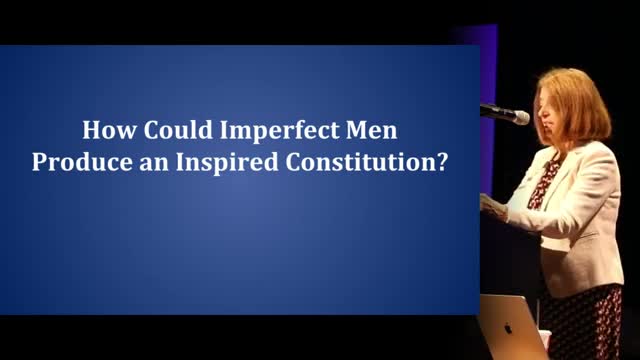God's Master Plan Behind America's Founding Fathers
October 06, 2024 | Utah Eagle Forum, Utah Lobbyist / NGO, Utah Legislative Branch, Utah
This article was created by AI summarizing key points discussed. AI makes mistakes, so for full details and context, please refer to the video of the full meeting. Please report any errors so we can fix them. Report an error »

In a recent address, a speaker drew parallels between the imperfections of biblical figures and the founding fathers of the United States, emphasizing the importance of recognizing strengths alongside weaknesses. The speaker highlighted the apostle Peter, who, despite moments of denial and violence, played a pivotal role in early Christianity, illustrating that flaws do not define a person's entire character.
The discussion transitioned to the historical context of the founding fathers, suggesting that their emergence was part of a divine plan. The speaker referenced the year 1809, a time overshadowed by significant battles, yet marked by the births of influential figures such as Abraham Lincoln and Alfred Tennyson. This juxtaposition aimed to illustrate that while the world often focuses on grand events, it is the quieter, seemingly insignificant moments—like the birth of future leaders—that shape history.
The speaker argued that God orchestrates events through individuals, positing that the founding fathers were born at a specific time and place to fulfill a divine mission, including the creation of the U.S. Constitution. This perspective invites reflection on the broader implications of leadership and legacy, suggesting that true impact often arises from a combination of personal strengths and the circumstances of one's birth.
The discussion transitioned to the historical context of the founding fathers, suggesting that their emergence was part of a divine plan. The speaker referenced the year 1809, a time overshadowed by significant battles, yet marked by the births of influential figures such as Abraham Lincoln and Alfred Tennyson. This juxtaposition aimed to illustrate that while the world often focuses on grand events, it is the quieter, seemingly insignificant moments—like the birth of future leaders—that shape history.
The speaker argued that God orchestrates events through individuals, positing that the founding fathers were born at a specific time and place to fulfill a divine mission, including the creation of the U.S. Constitution. This perspective invites reflection on the broader implications of leadership and legacy, suggesting that true impact often arises from a combination of personal strengths and the circumstances of one's birth.
View full meeting
This article is based on a recent meeting—watch the full video and explore the complete transcript for deeper insights into the discussion.
View full meeting

